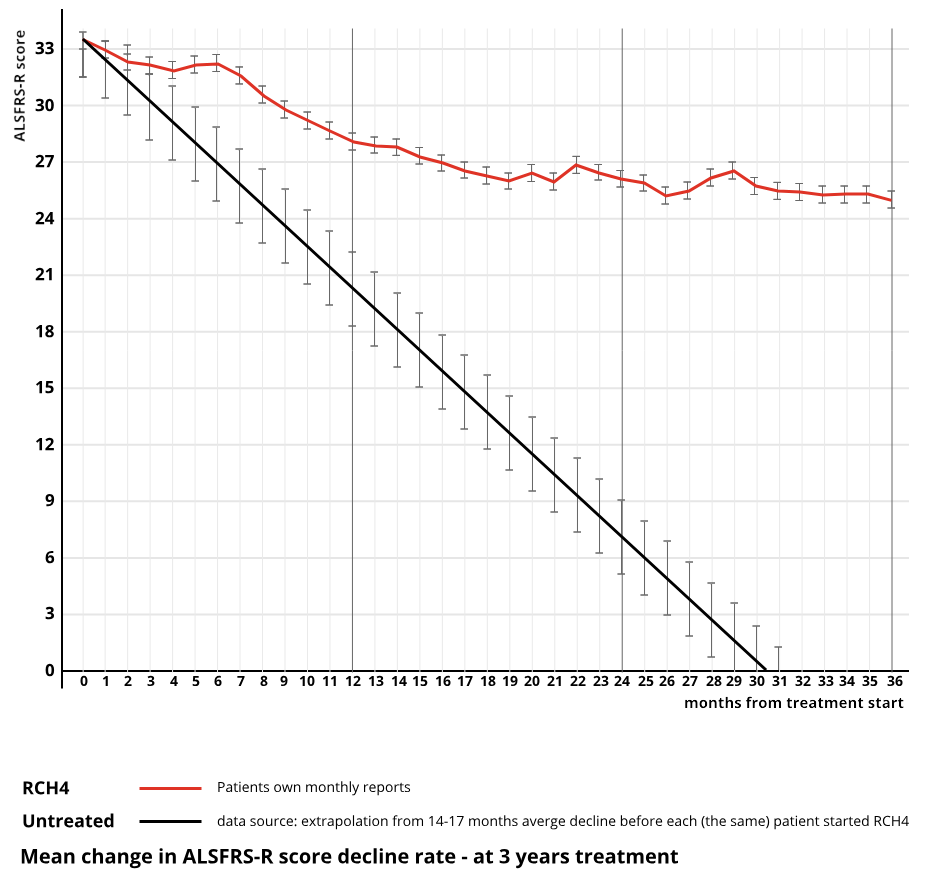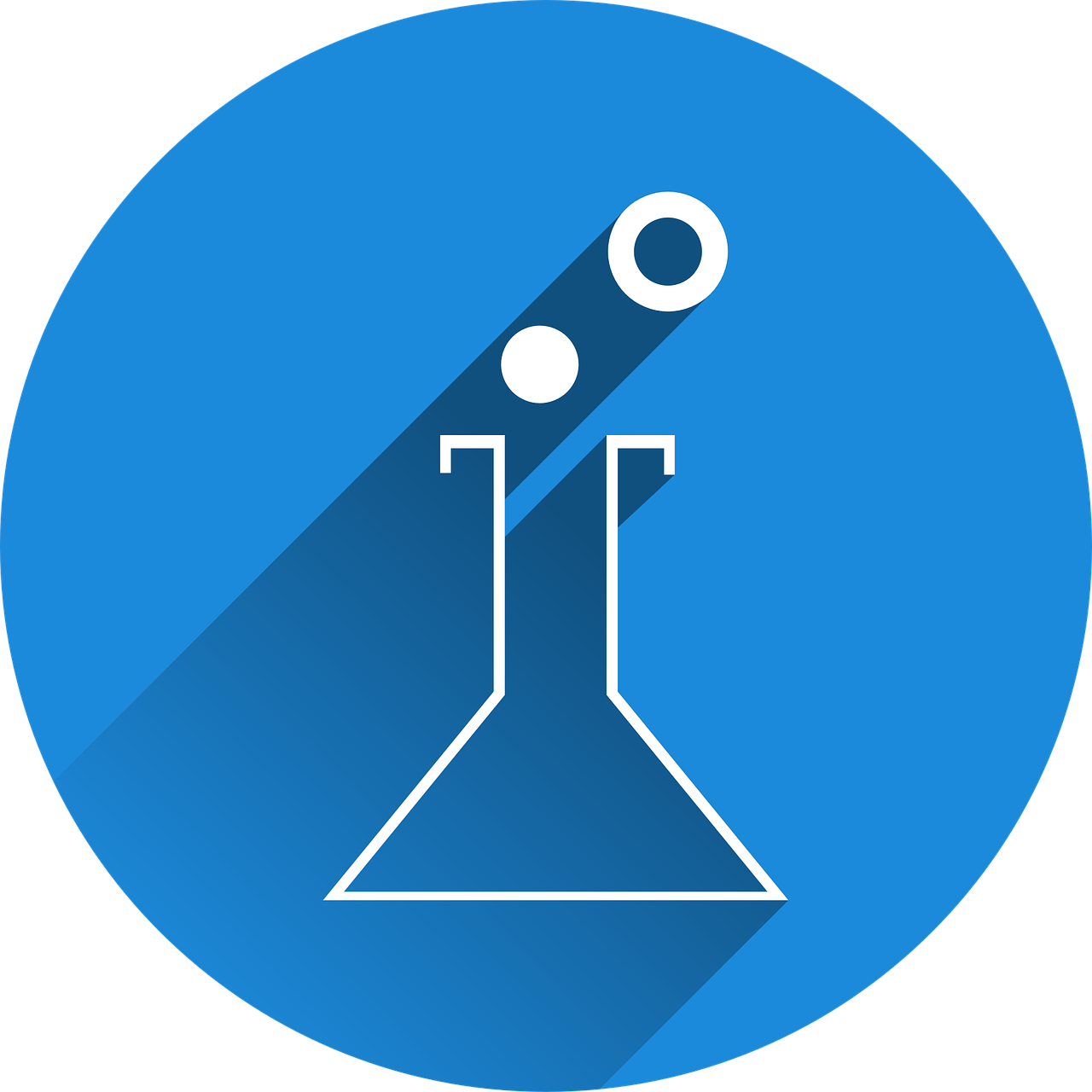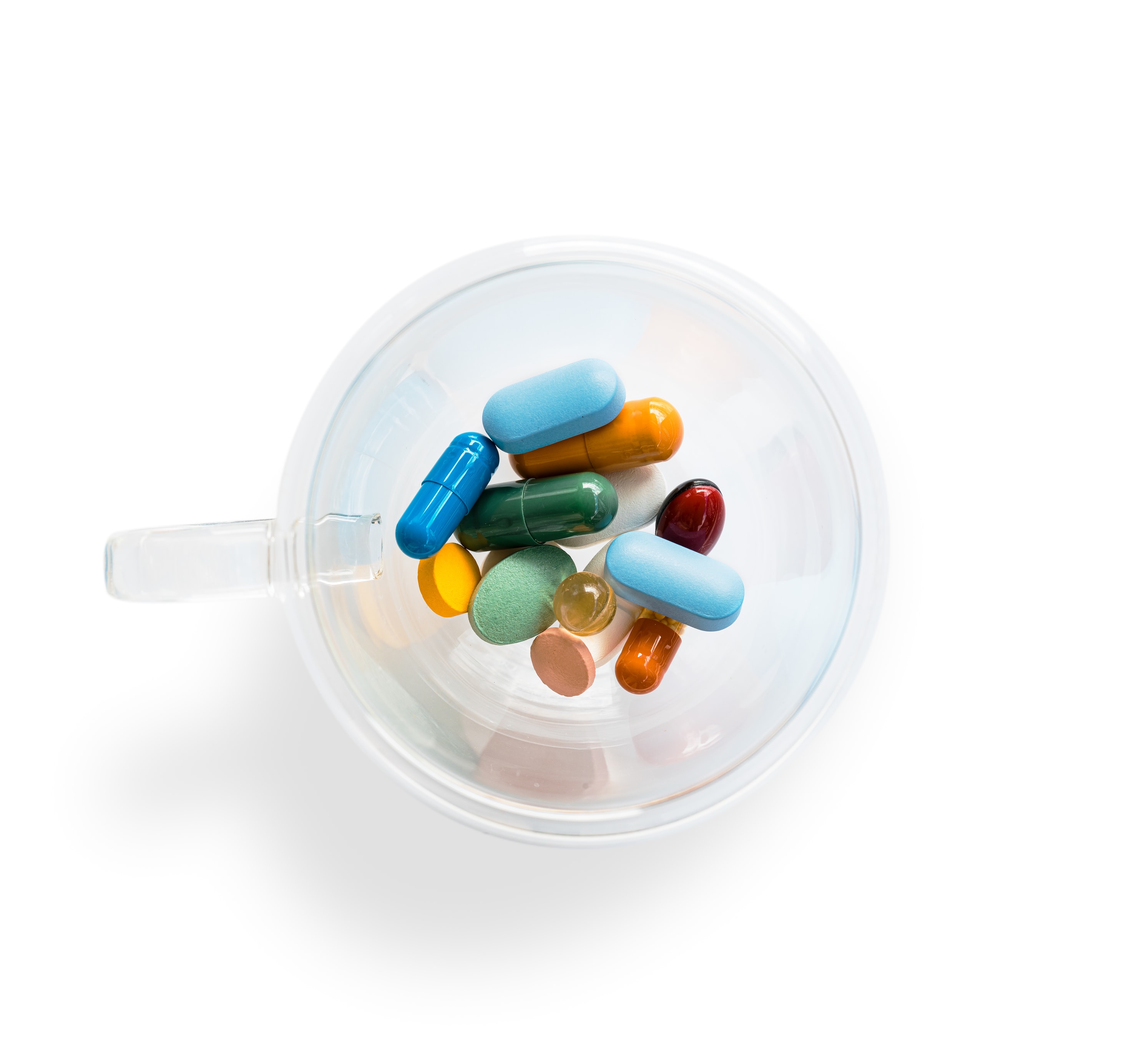
RCH4 - a new ALS drug
A previously unknown problem protein has been discovered.
A specifically designed new ALS drug, RCH4, successfully suppresses it
Newly diagnosed?
If you have been diagnosed with ALS and are potentially interested in taking this new drug you must first be fully aware of the following

Availability is scarse
Just because the drug is free does not mean it is cheap and useless. In fact, it is scarce and immensely expensive.
Due to the lack of any external source of funding, we must pay the cost ourselves as a charitable undertaking, therefore the number of patients we can afford to treat is very limited. Accordingly, we avoid publicity or recognition. From time to time when we can afford to treat more PALS, we publish a temporary ‘Contact us’ page inviting those who may be interested to apply for help. In every country, we must comply with both their laws and medical ethics. We require some documentation before we could consider helping you which includes an evaluation form, confirmed written diagnosis of ALS or MND from a neurology clinic, a recent blood test, doctor’s prescription, Informed Patient Consent - and so on.
You may have issues that would preclude you from using this drug.

RCH4 is an experimental drug
Notwithstanding no side effects over more than eighty patient-treatment years, and slowing or stopping the progression, the current status of this drug is experimental.
We cannot afford to do blinded, placebo-controlled clinical trials. Accordingly, although there exist decades of clinical data indicating notable safety and efficacy over decades of patient-years, in the absence of a 6-month trial (costing $millions) RCH4 must still be considered as an unproven treatment.

RCH4 is not a cure
Do not expect a cure - that is extremely unlikely and probably impossible with existing technology. The terms ‘ALS’ and ‘MND’ are commonly used as the same thing, whereas, strictly speaking there may be small differences in the definition. There is no clear biomarker (“test”) for ALS and is difficult to diagnose. In fact, ALS is probably a number of very different diseases that ‘present’ (the observed symptoms) the same. An example would be Lyme disease. These are referred to as ‘mimics’ If not entirely different diseases, they are at least different subtypes of the disease. Accordingly, one single drug or treatment is unlikely to be effective for all patients.
Whereas increasing knowledge of the genetic mutations PFN1, SOD1, TLS/FUS, TPD43, C9orf72, etc., adds to the understanding of ALS pathogenesis, it also underlines the heterogeneity of ALS.

RCH4 may not work for you
Neurodegenerative conditions very rarely improve - if ever. This outlook may now be changing, but there can be no guarantees or assurances of efficacy. Whereas it is imperative that one maintains a positive mental attitude and optimism, likewise, it is most important not to acquire unrealistic expectations. A respected Professor of Neurology and a Principal Investigator for ALS clinical trials, Dr. Jeremy Shefner, wisely observed: “As a community, we are all vulnerable to being overly hopeful and accepting on face value, preliminary data that is expressed positively.”
RCH4 may not help you - people differ in their response to any medication. Whether or not you ask us for treatment is your decision.
On the basis of the current limited available evidence at this time ( > 6,000 doses by 2018), it may or probably slow the statistical progression of your ALS. Some may have views about the implications of living longer. (Refer to the above chart. Also, refer to EFFICACY).
For some PALS, it stops the decline (it stabilizes) of their ALSFRS-R score condition over time. Indeed for some - years. You should also consider the implications of this.
ALS is a highly variable condition and PALS are also highly variable in their response to treatment. Random charts for RCH4 which may be representative of the overall ALS population can be seen HERE.
Although RCH4 has an outstanding safety record and no notable related side effects have ever been reported to date after decades of continual patient-treatment years, there is always the potential for side effects with any drug. You would take RCH4 entirely at your own risk.